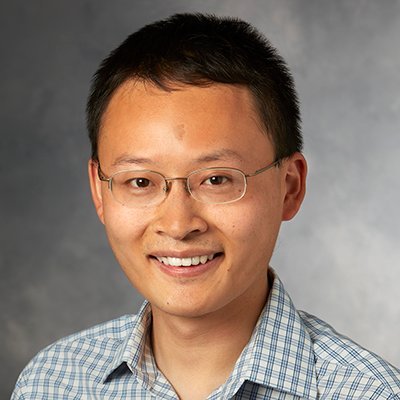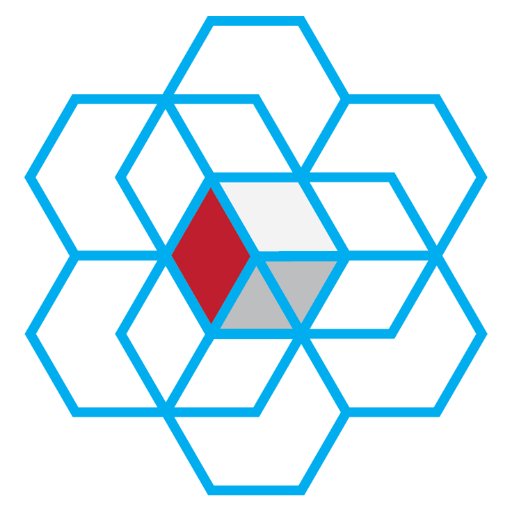
Markus J. Buehler
@ProfBuehlerMIT
Followers
14K
Following
15K
Media
1K
Statuses
6K
McAfee Professor of Engineering @MIT
Cambridge, MA
Joined December 2014
The Anatomy of Discovery: Our new paper in @MRSBulletin shows how GNNs + reasoning-driven massively agentic AI can autonomously design alloys - linking atomic vibrations, dislocation physics & macroscopic strength. Beyond prediction, this is an important step toward AI that
1
1
14
Paper: A. Ghafarollahi and M.J. Buehler, MRS Bulletin, 2025,
link.springer.com
MRS Bulletin - A multi-agent artificial intelligence (AI) model is developed to automate the discovery of new metallic alloys, integrating multimodal data and external knowledge, including insights...
0
1
6
Really happy to share our new paper on using AlphaEvolve for mathematical exploration at scale, written with Javier Gómez-Serrano, Terence Tao, and @GoogleDeepMind's Bogdan Georgiev. We tested it on 67 problems and documented all our successes and failures. 🧵
19
142
870
This paper shows that even the most advanced LLMs/reasoning models cannot yet know what they believe as they collapse these into one surface. Until AI learns to differentiate, it cannot genuinely discover - science is, after all, the art of differentiation! The frontier is that
In order for AI to work well with humans, it needs to distinguish an individual's belief from knowledge and fact. We created KaBLE, a new benchmark of 13K questions to test this ability. Data https://t.co/YLYVloS36Y 📰 https://t.co/ZhMMr20j0r Great job led by @suzgunmirac w/
1
2
15
Is 3D dragging you down? Wish you could instead use the 2D ColabFold representation for all your work? 🤓 Introducing: py2Dmol 🧬
8
40
294
Speaking at #CDFAM tomorrow: how AI composes across scales - from protein and material design to music and manufacturing. A new nexus of creativity where biology, engineering, and human ingenuity collide!
3
2
16
We’ve built AI that learn from the past - from data, labels, and memory. But discovery begins where memory ends, and the next intelligence must learn through creation, not recollection, and explore never-before-seen data and phenomena - growing knowledge instead of replaying it.
3
3
20
GitHub repo with code, part list, assembly instructions, etc.:
github.com
Contribute to lamm-mit/BEAVER development by creating an account on GitHub.
0
1
4
Nature produces incredible biomaterials - think plant fibers or insect exoskeletons - which we are often challenging to mold into shape and form for de novo engineering applications. Introducing BEAVER: An open-source and low-cost dual-extruder 3D printer for macroscale biotic
2
3
12
Excited to announce that we’re hosting the IROS 2025 AIR4S Workshop “Embodied AI and Robotics for Future Scientific Discovery” on October 24, 2025 (9:00 AM – 1:00 PM, GMT+8) at the Hangzhou International Expo Center – Pressroom A (210A). Invited Speakers - leading experts from
4
3
5
Today’s LLMs excel at statistical pattern-matching but they often struggle to reason from first principles, to integrate data, physics, and symbolic knowledge into coherent scientific understanding. In my plenary at #SciFM2025, I outlined a framework for AI that can think -
2
3
16
DMSE together with @MIT_SCC seeks candidates for a tenure-track Assistant Professor with experience in combining fundamental scientific principles with algorithmic innovations to empower understanding and synthesis of materials. Applications close Nov 30:
dmse.mit.edu
0
5
12
Excellent paper and thought leadership! Thank you @DanHendrycks and collaborators. The work highlights many important features still missing in today’s AI such as interactive intelligence, perception, adaptability and memory. A key component is the ability to abstract and
The term “AGI” is currently a vague, moving goalpost. To ground the discussion, we propose a comprehensive, testable definition of AGI. Using it, we can quantify progress: GPT-4 (2023) was 27% of the way to AGI. GPT-5 (2025) is 58%. Here’s how we define and measure it: 🧵
0
2
11
I’m biased but I want to see way more of this AI + cancer research + open-source thinking long-term: science research has been most beneficial and successful when it involved a community exchanging and fostering ideas. We have to keep this alive in a world of increasingly
The model + resources are now on HuggingFace and GitHub so researchers can keep building and experimenting. More details here: https://t.co/NSGcfBL9We
31
58
741
After a formative time at OpenAI, I’m launching Maison AGI (@maisonagi), a fashion house creating cultural artifacts for the AI era. Our first collection, Relic of Thought, is a collaboration with Ilya Sutskever (@ilyasut), featuring his original artworks alongside a signature
227
112
2K
Nice work!
Will present automatically derived kernels to @GPU_MODE noon PST Saturday. Got to @MIT in September, been grinding maths w/ @GioeleZardini to ensure universal applicability across models and hardware. Hierarchical kernels, encoding, optimization. This is gonna be good.
0
0
6
Do co-folding models learn physics—or just memorize pockets? Deep models like AlphaFold3 and RoseTTAFold All-Atom can place small molecules into protein pockets with eye-popping accuracy. But when chemistry changes, do they still obey sterics, electrostatics, and chemistry—or
4
34
181














